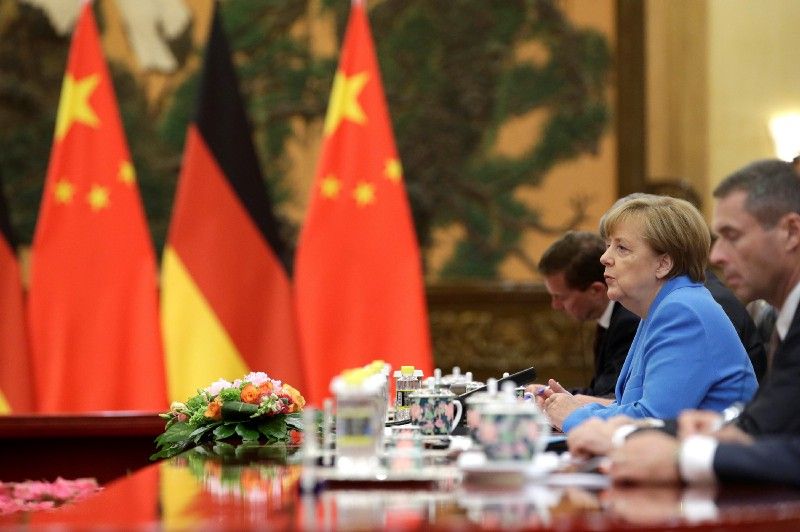May 25, 2018
Yesterday, the world’s most powerful woman, German Chancellor Angela Merkel went to meet the world’s most powerful man, Chinese President Xi Jinping. Ms. Merkel has been to China many times, of course, but as my fellow Signalista Gabe is here to explain, this trip is pivotal — it comes as a deepening estrangement between Europe and the US is reshaping Germany’s choices and challenges on the world stage.
Only 14 percent of Germans think the US is a reliable partner anymore, according to a recent poll. More than forty percent, meanwhile, now see China in a positive light.
Germany and China certainly find themselves in the same boat on a number of important issues. Trade is one. As two of the world’s leading exporters, China and Germany run huge surpluses with the US, which means both are now in the crosshairs of the Trump administration’s zero-sum trade policies. The White House has already singled out key national industries — autos in Germany, advanced technology in China — for possible tariffs.
Merkel and Xi also agree that Trump’s walkout on the Iran deal was an impetuous and dangerous move. They will try to forge a path forward that preserves the deal, even in the face of new US sanctions.
But Merkel also has a huge bone to pick with Xi about China’s tech and industrial policies, which discriminate against foreign companies, and about Beijing’s siphoning of advanced technologies through investment in European firms. After all, China is an emerging competitor in markets for high-value industrial goods that German has dominated for decades.
The irony is that the Trump administration is also upset with China about these same issues, but has chosen to take up a trade fight with its European allies rather than work with them to pressure China together.
This leaves Merkel — who just weeks ago called for a new and more assertive European foreign policy — in the extraordinary position of having to find common ground with a rising competitor, because of the lack of common cause with a traditional ally.
More For You
In this episode of Tools and Weapons, Microsoft Vice Chair and President Brad Smith sits down with Ed Policy, President and CEO of the Green Bay Packers, to discuss how purpose-driven leadership and innovation are shaping the future of one of the world’s most iconic sports franchises. Ed shares how technology and community-focused initiatives, from Titletown Tech to health and safety innovations on the field, are transforming not just the game of football, but the economy and culture of Green Bay itself. He explains how combining strategic vision with investment in local startups is keeping talent in the Midwest and creating opportunities that extend far beyond Lambeau Field.
Subscribe and find new episodes monthly, wherever you listen to podcasts.
Most Popular
Egyptians head to the polls to elect a new parliament during the first round of the Egyptian parliamentary elections in Giza, Egypt, on November 10, 2025.
Photo by Islam Safwat/NurPhoto
Egyptians are voting this month in parliamentary elections that aren’t expected to change who’s in charge, but could allow President Abdel Fattah el-Sisi to rule beyond 2030.
An injured soldier is transferred to a hospital following a clash between Thai and Cambodian troops over a disputed border area in Sisaket Province,Thailand, December 7, 2025.
Royal Thai Army/Handout via REUTERS
Thailand and Cambodia’s ceasefire is on the verge of collapse. Strikes were launched across their disputed border today, following clashes over the weekend that resulted in the death of a Thai soldier.
© 2025 GZERO Media. All Rights Reserved | A Eurasia Group media company.
